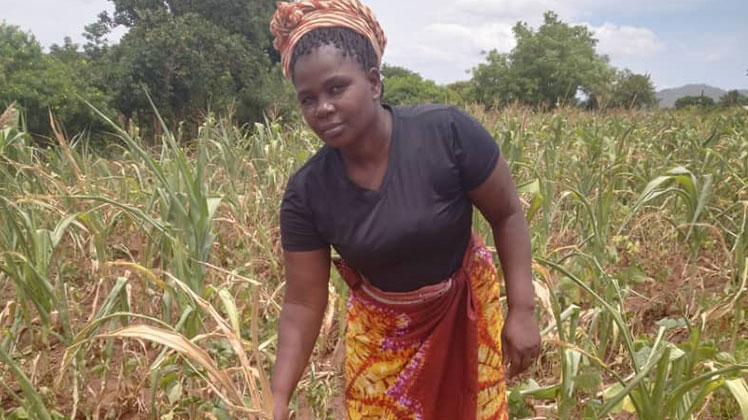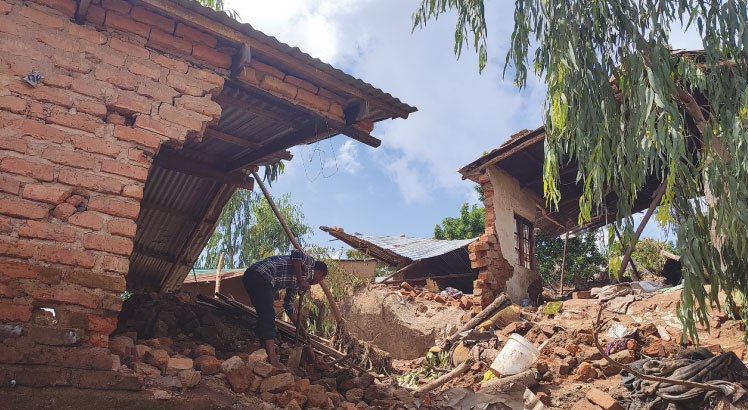War on loggers goes north
Twambilire Mhone 28, from Luwazi in Nkhata Bay, survives on cassava farming and illegal charcoal.
“I sell the charcoal to big barons who get truckloads at the night for sale in Nkhata Bay town and Mzuzu City,” he says.

At Nkhata Bay Market, charcoal bags are openly on sale and the district council levies market fees on the illicit commodity to maximise revenue. This silently legitimatises illegal charcoal, leaving forests vanishing faster than they are being replenished.
On a 50-kilometre (km) drive from Nkhata Bay to Mzuzu, charcoal bags on sale by the roadside flash past as police and forestry officials watch or speed by.
The official indifference riles community leaders surrounding the 54-square km Kaning’ina Forest in the mountainous district along the shoreline of Lake Malawi.
Traditional authorities (T/As) Nyaruwanga, Timbiri and Chipindinga expressed their disappointment in Mzuzu during a stocktake on progress in the restoration and conservation of Kaning’ina as well as Bunganya and Perekezi forest reserve in Mzimba.
The chiefs said the government has abrogated its responsibility to protect the environment.
“It’s shocking that instead of enforcing existing laws, authorities aid the plunder of Kaning’ina forest for self-enrichment,” said Nyaruwanga.
Government devolved forestry management to district councils for greater community involvement and more efficient conservation efforts.
However, Nkhata Bay chiefs feel frustrated by the shady dealings of forest protectors, including police and forestry officers.
Sub-T/A Chimbininga says most of the illegal timber and charcoal producers in Kaning’ina are agents of public servants entrusted to protect the waning forest.
“When we call forestry and police officers to arrest illegal charcoal and timber producers, they always tell us that they have no transport,” he says.
T/A Nyaruwanga recalled providing a vehicle to bring police and forestry officers, “but they dilly-dallied without coming”.
The chiefs accuse forest protectors of “clandestinely aiding plunderers in protected forests under siege.
The three forests, except Kaning’ina where soldiers from Moyale Barracks train, are guarded by armed police and forest guards.
Surprisingly, truckloads of illegal charcoal, timber and logs leave the forests and pass checkpoints with ease.
“This confirms the involvement of big shots who palm-oil law enforcers,” says Mhone.
Section 68 of the Forest Act amended in 2020 outlaws the production, possession, trafficking and sale of charcoal without permit. It prescribes a 10-year imprisonment and a K5 million fine for the offence.
The law symbolises Malawi’s seriousness in combating forest crimes, according to conservationists.
But T/A Nyaruwanga deplores the low fines and bail conditions the courts give to illegal charcoal and timber producers even though the Constitution accords every suspect the right to bail, the presumption of innocence and fair trial.
The losing battle to save Kaning’ina Forest has given rise to vigilantes that violently crack down on forest raiders.
“Local communities know the economic benefits of conserving forests, which are trusted sources of rain, rivers, foodstuffs, fresh air and ecotourism,” says T/A Timbiri.
He urges the government to subsidise sustainable cooking energy and technologies that reduce the burning of firewood and charcoal, which puts forests up in smoke.
More than nine in 10 households in Malawi use firewood and charcoal for cooking, according to the 2018 census.
Timbiri also asked the government to revive the recruitment of community-based forestry patrollers and give local chiefs the power to impose fines to forestry offenders.
“We can’t save forests unless the Department of Forestry takes a tough stance on its corrupt and negligent staff,” he said.
Deputy director of forestry Ted Kamoto warned that the Department of Forestry will not shield any officer suspected of corrupt practices.
He urged the forest protectors and whistleblowers to back every allegation with credible evidence.
The meeting also convened representatives of the Malawi Police Service, Anti-Corruption Bureau, Judiciary, Forestry Department and local councils as part of the US-funded Modern Cooking for Health Forests Project.
Daniel Kabichi, the deputy director of forestry responsible for law enforcement, said the government has deployed 300 forestry guards nationwide to ramp up patrols, which have led to increased interception, conviction and jailing of forest plunderers. Some of the convicts have lost their lorries to the government.
However, he decried inconsistent sentences and fines by courts.
Although it takes 12 kilogrammes of wood to produce a kilogramme of charcoal, one magistrate imposed a K3000 fine for several bags confiscated.
District Commissioner Rodgers Newa assured the chiefs that Nkhata Bay District Council supports efforts to save endangered forests.






One Comment